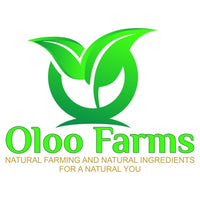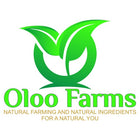5 Must-Dos for a Thriving Organic Garden
Most of us know that having beautiful skin is more than the soaps and lotions you put on our bodies. It's also about the things we put into our bodies. That's why we've spent many years perfecting the art (and science) of growing organic produce in our urban oasis, eh-hem, back yard garden.

Making the most of our back yard space for organic gardening
Sometimes the process is stressful, but when all is said and done, the journey is rewarding. In fact, last year we were able to freeze and can more food - tomatoes, swiss chard, bell peppers, kale, collard greens, potatoes, onions - than we ever thought imaginable. All organic, all for the price of seed, soil, some water, and a little time.
We certainly don't know all there is to know about organic gardening but we've learned A LOT over the years! And since we've gotten many questions about our methods, we're sharing a few things that have become must-dos for us. These are tips that we discovered through heaps of research and ones that, through experience, we've found to be especially helpful. Ready? Let's go!
Tip #1: Plan then Plant
Creating a plan for what you will plant is the absolute first step for a thriving organic garden. You can start by asking yourself some key questions.
- What produce do I buy the most at the grocery store or farmer's market? Answering this question will help you to know which fruits and veggies will actually be eaten when harvested. There may be lots of broccoli seeds being sold at the garden supply store but if everyone in your family hates broccoli you can skip those seeds and get something that you will enjoy. Another consideration here is which produce you enjoy that is likely to be exposed to a significant amount of pesticides. The Dirty Dozen list is an excellent resource for this information. If you eat a lot of veggies and fruits on this list, planting them in your organic garden can help you to avoid pesticide exposure associated with buying it in the grocery store.
- What produce do I always seem to run out of? Of these which are the most expensive? For those of you who are watching your wallets (and let's face it -who isn't?) answering these questions may help you to create a garden that significantly reduces your grocery budget. You can choose to plant those fruits and veggies that you eat a lot of but costs a lot at the grocery store.
- What grows well in my area? What seasons should I plant each of these? My family loves mangoes! There are four of us and we can munch through 6-8 large mangoes in one sitting. We've tried everything in our power to grow mangoes but they just do not survive in our area. Consulting a guide that tells you what grows in your area and when to plant starts you down the path to success. We like this one from The Old Farmer's Almanac.
Tip #2 - Try Composting
If possible, make your compost. Now, this is a process. Building a decent amount of compost can take between 9 and 12 months but composting at home can replace the need for buying organic soil (see tip #5). To make a basic compost mix kitchen waste (vegetable scraps, etc.), old cardboard or newspaper (matte, not shiny), and dry leaves. You can mix in a container or on the ground. Cover, water once each week, and stir once each month. If composting in a container be sure that there is drainage. Any pooling of water at the bottom of the container can lead to a foul odor as well as attract insects and rodents. Your compost is ready when it looks like dirt.
Tip #3 Seeds or Seedlings?
Now for that all-important question - should I start with seeds, seedlings, or both? Most often we start with seeds but there are benefits to both. Seeds are most cost-effective and therefore allow you to plant a lot. We usually start our seeds in small containers, e.g. one seed in each space of an old egg carton, then transplant them when they are seedlings.

We've found plastic to be better than cardboard when starting seeds in egg cartons. It's also a great way to use plastic cartons multiple times, keeping it out of the waste stream.
Seedlings are great for anyone who wants a head start with a plant that has already sprouted. Seedlings also decrease your wait time to eat your produce since the plant has already started growing. If choosing seedlings, do some research beforehand so that you can detect plants that are sick or that have been potted for too long as these are less likely to survive after transplant.
Tip #4 - Watering
Watering may just be the hardest part of gardening, especially if you live in southern California as we do. Regularly scheduled watering is ideal. This may be manually or with a timed watering system, e.g. drip irrigation. There are also a few ways to reduce the time spent watering and/or the amount of water used to fuel your organic garden. We like to use organic mulch and peat moss to reduce our time watering. Both help to keep our plants moist as they hold onto water longer.
Tip #5 - Choose Organic
This last tip is super simple and almost goes without saying, which is why we're tucking it in at the end. When starting your organic garden be sure to choose all organic and non-GMO planting products - soil, seeds and seedlings, fertilizer, etc. This ensures that you give your plants the very best start, one that is not contaminated with long-lasting chemicals that eventually end up in your food.
These five tips have been incredibly helpful for us and as we pulled them together for this blog it became obvious that more detail is needed! That's why we'll have detailed blog posts that walk you through the ins and outs of each of these tips coming very soon.
Organic gardening can seem like a challenging endeavor but it can be fun and rewarding if you employ these 5 tips. The best part will be enjoying the literal fruits of your labor and the knowledge that there were no chemicals or GMOs used to grow them. You will know exactly what you're putting into your and your family's bodies to produce health benefits and beautiful skin.
We know that we did not capture all of the must-dos when it comes to organic gardening. Please share some of your favorite must-dos in the comments so that everyone, us included, can benefit from each other's knowledge and experience. Happy gardening!
This Natural Life
 |
Hello and welcome! We are Adams and Winetta – a husband and wife team who handcraft natural bath and body products. Often, we incorporate life-giving ingredients, grown in our own organic garden, into the items we make. Join us as we share our adventures in soaping, gardening and growing a family while living a life as close to natural as possible. |




Leave a comment